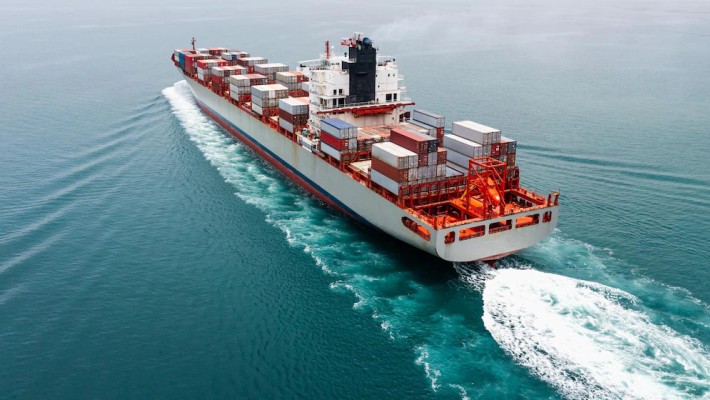Freight Forwarder Insights
Huin International Logistics Latest Articles
Powering the Future: Unveiling One of the Top Energy Logistics Companies in China
In recent years, the transportation and logistics sector in China has experienced significant growth. According to Research and Markets, this trend is expected to continue with a projected CAGR of over 6% from 2022 to 2027. The pandemic has only served to propel the Chinese logistics market further, building upon its already impressive progress. Today, we will discuss the emergence of China as a major player in the global logistics industry by highlighting key insights into the country's market trends.
China has been making significant strides in the transportation and logistics industry
cementing its position as a global leader. This can be attributed to various factors, such as effective government regulations, well-built roads and rail systems, extensive storage and warehousing options, and advanced IT infrastructure. Even prior to the pandemic, the Asia-Pacific region held a prominent spot in the international freight forwarding market, with a total value of 2425.91 billion Euros. China stands out as the top performer in this region. Let's delve into some of the latest developments shaping China's logistics market.
A flourishing online retail market
The booming e-commerce industry in China has ushered in a new era for the country's economy. As reported by Statista, as far back as two years ago, China's GDP consisted of more than 38% from e-commerce alone. Additionally, nearly one fourth of Chinese goods were accessible online in 2020, significantly surpassing the international average of 18%. In fact, last year, over half of the world's e-commerce retail sales were made up of Chinese products. With a staggering 780 million people making up the world's largest online buyer population in China, it goes without saying that the freight forwarding industry is thriving.
Leading Chinese e-commerce giants such as JD.com, NetEase, and Alibaba are now venturing into global markets to reach a wider audience. Given the increasing popularity of online goods, these companies are turning to third-party logistics (3PL) providers for reliable delivery solutions. In doing so, sellers can devote their attention to their business while entrusting 3PL service providers with the task of timely deliveries.
The consolidation of companies is resulting in higher profits for freight forwarders.
Freight forwarding companies and third-party logistics providers are constantly seeking ways to enhance their profitability. One strategy they are implementing is transitioning towards omnichannel integration and embracing digitization for long-term growth. Furthermore, the most recent development in this sector is the formation of China Logistics Group in December 2021. This merger united five significant government-owned entities - China Logistics, China National Materials Storage and Transportation, CTS International Logistics, China Railway Materials Group, and China National Packaging - with a combined registered capital of $4.7 billion. As a result, this company has emerged as a major player in the Chinese logistics market.
In a similar fashion, other competitors in this field are also seeking to grow their capabilities through mergers. One example is Cainiao Smart Logistics Network Ltd (owned by Alibaba group), which acquired a 15% share in Air China Cargo this year. Furthermore, they have formed partnerships with Atlas Air and LATAM Airlines. SF Holding, a Chinese multinational delivery service, recently acquired a majority stake in Kerry Logistics and has greatly expanded its fleet size as well.
As a result of this development, major global companies have been motivated to buy out domestic Chinese logistics businesses. For instance, Maersk has recently acquired LF Logistics, a Hong Kong-based contract logistics company, in order to enhance its omnichannel fulfillment capabilities across the Asia Pacific region. Similarly, Kuehne+Nagel has also made a strategic move by acquiring Apex, a top Asian air freight company, to strengthen its position in the Asian market for freight forwarding services.
The Chinese logistics industry is being strengthened by efforts from the government.
China's government is heavily investing in infrastructure development, including the implementation of the Belt and Road Initiative. This initiative is positioning China as a global leader in transportation and logistics. Furthermore, it allows China to provide logistics infrastructure and technology to other nations. The rail freight sector has also been bolstered significantly, with the China Railway Express operating numerous trains for cargo transport between China and Europe. These initiatives demonstrate the government's determination to establish China as a prominent player in the international logistics industry.
An intensely cutthroat environment
The freight and logistics industry in China is fiercely competitive and comprised of a variety of players such as foreign multinationals, domestic logistics companies, and transportation firms. Some prominent contenders for a larger market share include UPS, DB Schenker, XPO Logistics, CEVA Logistics, DHL, Yusen Logistics, FedEx Corp, Sinotrans and CSC, International Logistics Group, COSCO, SF Express, Jizhong Energy, Kuehne + Nagel, and Xiamen Xiangyu Group.
The process of automating cargo forwarding procedures
China's independent freight forwarders are rapidly expanding through digital transformation, aided by technology to cater to niche segments and remote areas. Notably, the Chinese logistics industry has also seen the emergence of top digital freight forwarding companies like HUIN International Logistics,Flexport, Freightos, Cogoport, Freighthub, and Twill. According to a Mordor Intelligence report, this market is expected to grow at a CAGR of over 24% from 2022 to 2027. Furthermore, the growth rate for small and independent forwarders is projected to surpass that of medium-sized logistics companies in the coming years. Embracing digitization across all services will be crucial for these forwarders to achieve this growth.
